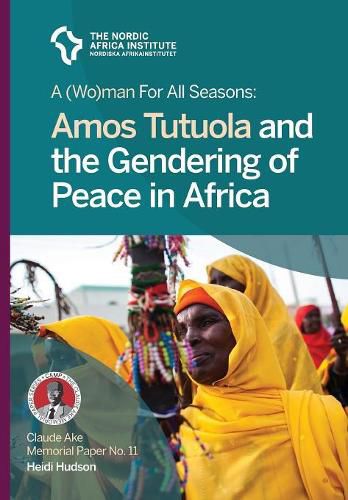Readings Newsletter
Become a Readings Member to make your shopping experience even easier.
Sign in or sign up for free!
You’re not far away from qualifying for FREE standard shipping within Australia
You’ve qualified for FREE standard shipping within Australia
The cart is loading…






This book explores the work of Nigerian author Amos Tutuola and how it can enhance our understanding of gender and peacebuilding in Africa. Critical feminist contributions on how a gender perspective can broaden inclusion in post-conflict processes, as well as change institutions and mindsets are surely innovative but have not succeeded in dislodging liberal peace as the means of dealing with conflict on the African continent. Such works also draw their critiques from largely rationalist, Western roots. Entering Tutuola’s world, where human and non-human characters change and interchange, allows scholars and practitioners to see peacebuilding as organic, reliant on multiple identities and interlocutors, and grounded in local knowledge. I contend that such an expanded lens that integrates exogenous and endogenous knowledge systems non-hierarchically is not only relevant to the peacebuilding context, but could also find application in other areas in need of decolonisation.
$9.00 standard shipping within Australia
FREE standard shipping within Australia for orders over $100.00
Express & International shipping calculated at checkout
This book explores the work of Nigerian author Amos Tutuola and how it can enhance our understanding of gender and peacebuilding in Africa. Critical feminist contributions on how a gender perspective can broaden inclusion in post-conflict processes, as well as change institutions and mindsets are surely innovative but have not succeeded in dislodging liberal peace as the means of dealing with conflict on the African continent. Such works also draw their critiques from largely rationalist, Western roots. Entering Tutuola’s world, where human and non-human characters change and interchange, allows scholars and practitioners to see peacebuilding as organic, reliant on multiple identities and interlocutors, and grounded in local knowledge. I contend that such an expanded lens that integrates exogenous and endogenous knowledge systems non-hierarchically is not only relevant to the peacebuilding context, but could also find application in other areas in need of decolonisation.